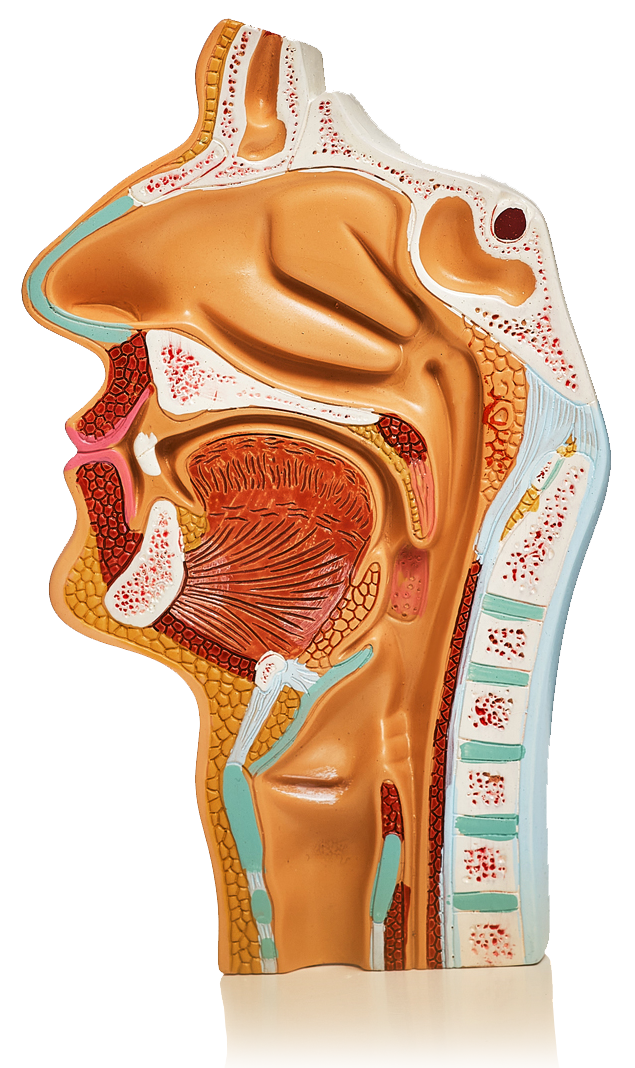
How is it treated?1
Treating dysphagia depends on the underlying condition and the type of dysphagia that the patient has. However, most swallowing difficulties can be managed.
Treatment will depend on

Dysphagia of mouth or throat (oropharyngeal)
This can be difficult to treat if it is caused by a condition that affects the nervous system, because those problems can’t usually be corrected using medication or surgery. There are three main ways that oropharyngeal dysphagia is managed to make eating and drinking as safe as possible.
1. Swallowing therapy
1. Swallowing therapy
Patients may be referred to a speech and language therapist (SLT) for swallowing therapy. SLTs use a range of techniques that can be tailored to a specific patient – such as teaching patients swallowing exercises.
2. Dietary changes
2. Dietary changes
Patients may be referred to a dietitian for advice about a healthy balanced diet. An SLT can give advice about softer foods and thickened fluids that may be easier to swallow.
3. Feeding tubes
3. Feeding tubes
These can be used to provide nutrition while the patient is recovering their ability to swallow. They may also be needed in severe cases of dysphagia where there is a risk of malnutrition and dehydration.
Dysphagia of the gullet (oesophageal)
This is swallowing difficulties due to problems with the pipe leading from the back of the throat to the stomach. Treatments can include:
1. Medication
1. Medication
Depending on the cause, it is sometimes possible to treat oesophageal dysphagia with medication. For example, some medicines used to treat indigestion may improve symptoms caused by narrowing or scarring of the gullet.2. Botox
2. Botox
For patients with a rare condition called achalasia, botox can sometimes be used to paralyse the tightened muscles that prevent food from reaching the stomach.
3. Surgery
3. Surgery
Other cases of oesophageal dysphagia can usually be treated with surgery. This may include the use of an endoscope to widen a narrowed part of the gullet or if the patient has cancer of the gullet, a stent (usually a metal mesh tube) is inserted into the gullet and gradually expanded to allow food to pass through.
For children born with dysphagia
For children born with dysphagia (e.g. cerebral palsy), a speech and language therapist can teach the child how to swallow, will recommend adjustments to the food they are given and where necessary, how to use feeding tubes. Children born with cleft lip and palate are usually treated with surgery.
References
- NHS inform. Dysphagia (swallowing problems).
Available at: https://www.nhsinform.scot/illnesses-and-conditions/stomach-liver-and-gastrointestinal-tract/dysphagia-swallowing-problems#causes-of-dysphagia
Accessed: Dec 2024.

